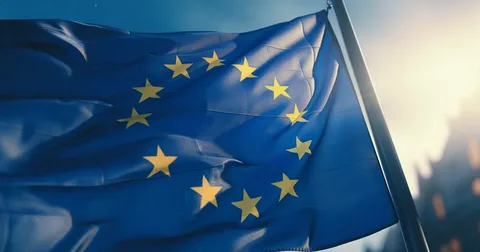European Update: Key Events in the Oireachtas and European Parliament
As the European political landscape evolves, significant discussions and decisions are set to take place in the coming days. The Oireachtas National Parliament Office for the European Union has announced a series of important debates and votes that will shape the future of the European Union.
Motion of Censure Against the European Commission
On July 7, the European Parliament will initiate a crucial debate regarding a motion of censure against the European Commission. This motion reflects growing concerns among members of the Parliament regarding the Commission’s actions and policies. The debate will provide a platform for MEPs (Members of the European Parliament) to voice their opinions and concerns about the Commission’s performance and governance.
Background of the Motion
The motion of censure has been brought forward due to various reasons, including perceived failures in addressing key issues such as climate change, migration policy, and economic recovery following the COVID-19 pandemic. Critics argue that the Commission has not adequately fulfilled its responsibilities, leading to dissatisfaction among member states and citizens alike.
A vote on the motion is scheduled for July 10, which will determine whether the Parliament supports or rejects the censure. Should the motion pass, it could lead to significant political ramifications for the Commission and its members, potentially reshaping the dynamics of EU governance.
Denmark’s Six-Month Council Presidency
On July 8, the European Parliament will also discuss Denmark’s agenda for its six-month Council Presidency, which officially began on July 1. Denmark takes over the presidency at a time of considerable challenges, including the ongoing impacts of the pandemic, economic recovery, and geopolitical tensions in Europe.
Key Priorities
Denmark’s presidency will focus on several key areas:
- Sustainability and Climate Action: Denmark has long been a leader in environmental policy, and this presidency aims to push forward ambitious climate initiatives.
- Digital Transformation: The agenda will include efforts to enhance digital infrastructure and promote innovation across member states.
- Strengthening the EU’s Global Role: Denmark plans to address the EU’s position on the global stage, particularly in relation to trade and security.
The discussion will provide an opportunity for MEPs to engage with Danish representatives and outline their expectations for the upcoming presidency.
Commemorating the Srebrenica Genocide
On the same day, July 7, European Parliament President Roberta Metsola will make a statement commemorating the 30th anniversary of the Srebrenica genocide. This solemn occasion serves as a reminder of the atrocities that took place in 1995 during the Bosnian War, where thousands of Bosniak men and boys were killed in a systematic campaign of ethnic cleansing.
Importance of Remembrance
Metsola’s statement underscores the importance of remembering the victims and acknowledging the lessons learned from such dark chapters in history. It is essential for the European Parliament to engage in discussions about reconciliation, justice, and the prevention of future atrocities.
This commemoration will also highlight the EU’s commitment to upholding human rights and promoting peace and stability in the region.
The Role of the European Commission
European Commission President Ursula von der Leyen is expected to participate in the plenary debate on July 7, alongside the entire College of Commissioners. This involvement signifies the seriousness of the motion of censure and the Commission’s commitment to transparency and accountability.
Expectations from the Commission
In light of the impending debate, many MEPs are calling for the Commission to address specific concerns raised in the motion. This includes clarifying its strategies for tackling pressing issues and outlining how it plans to regain the trust of member states and citizens.
The outcome of this debate and subsequent vote will be closely monitored, as it could significantly impact the Commission’s ability to govern effectively moving forward.
Looking Ahead
As the European Parliament embarks on these critical discussions, the outcomes will likely influence the direction of EU policies in the coming months. The debates surrounding the motion of censure, Denmark’s presidency, and the commemoration of the Srebrenica genocide reflect the complexities and challenges faced by the European Union today.
Engaging with Citizens
It is crucial for the European Parliament to maintain open channels of communication with citizens throughout this process. Transparency and accountability are essential for fostering trust and engagement among the public. The decisions made in the coming days will not only impact EU institutions but also the lives of millions across Europe.
Conclusion
The events scheduled for July 7 and 8 represent a pivotal moment for the European Union. As discussions unfold regarding the motion of censure against the European Commission, Denmark’s Council Presidency agenda, and the commemoration of the Srebrenica genocide, the European Parliament must navigate these issues with care and consideration.
The outcomes of these debates will resonate far beyond the walls of the Parliament, shaping the future of the EU and its commitment to democracy, human rights, and sustainable development. As the world watches, the actions taken in these sessions will define the EU’s path forward in addressing both internal and external challenges.














































